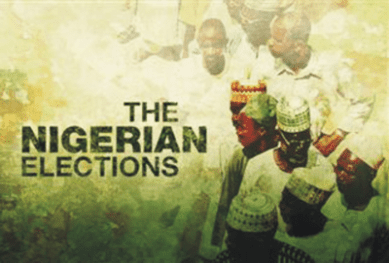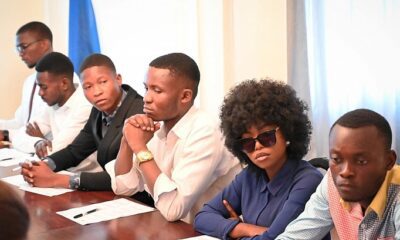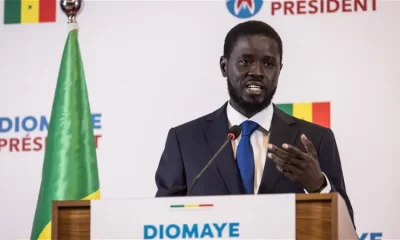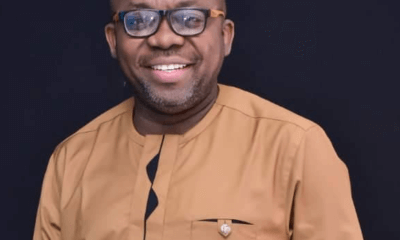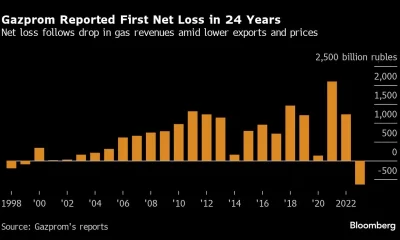Political Issues
Reporting the 2015 elections -By Ayo Olukotun
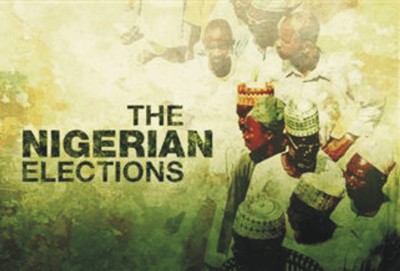
“Fairness and balance do not preclude taking a position. Fairness and balance simply mean reaching a conclusion only after taking into consideration all sides of an issue or a subject” – Mohammed Haruna, December 15, 2014
He who says politics says money, to begin with the first of our customary titbits. If you doubt this maxim, ask the lucky beneficiaries of the “rain of dollars” at the recently concluded governorship and presidential primaries of both the Peoples Democratic Party and the All Progressives Congress.
According to a report in Saturday Punch of December 13, 2014, entitled, “PDP, APC primaries: Dollar, naira rain for delegates”, many delegates left the scenes of the primaries laughing to their banks having collected hefty amounts reaching up to $7,000 per delegate in some instances. To be sure, the use of money as vote-buying instruments is not new in Nigerian politics. It will seem however that not only are the amounts spent on buying votes rising but what is now known as stomach infrastructure in its various guises has become pervasive. Please, note that the monetisation of politics is not peculiar to Nigeria. A report by the Washington-based Centre for Responsive Politics on the recent midterm elections in the United States informs that the 2014 midterm was the most expensive yet in American history. The Centre estimates that candidates, parties, committees and donors spent over $3.64bn with the Republicans predictably outspending the Democrats.
What is disturbing, however, is the blatant use of monetary inducement to secure votes by the two frontline Nigerian parties. Obviously, given this kind of squalour and a political process priced out of the reach of the professional class, we may not have heard the last of bottom league rankings in the corruption perception indices of Transparency International. And this holds true irrespective of whether the PDP or the APC wins the presidential election next year.
The second titbit comes from two of our university’s convocation ceremonies. This year’s convocation ceremony at the Lead City University, Ibadan, was livened up by the presence of a representative of the Executive Secretary of the National Universities Commission, Prof. Julius Okojie, signalling an upswing in the hitherto tense relationship between the university and the commission. On Wednesday last week, the convocation ceremony at the Obafemi Awolowo University, Ile-Ife, had as one of its distinguishing human interest features the graduation in first class of twin brothers, Joshua Taiwo Ayansola and Caleb Kehinde Ayansola aged 22. The two of them were the only first class graduates in the Faculty of Education making their feat more remarkable.
Upon investigation, this writer discovered that the boys had a head start in that their father who unfortunately passed on last year was a lecturer at the Obafemi Awolowo University while their mother is the founder of a flourishing primary and secondary school. However we explain it, the achievement of the twins who have expressed their desire to become academics should serve as an inspiration for the teeming youths who are a significant demographic category in this country.
The opening quote drawn from star columnist and former newspaper proprietor, Muhammed Haruna, captures the essence of a two-day workshop on balanced and non-partisan election reporting held at the University of Ibadan on Monday and Tuesday. Organised by the Media Scholars Network in conjunction with the Independent National Electoral Commission, the workshop featured an array of distinguished journalists and media scholars. This include Kwesi Gyan-Apenteng, President, Ghana Association of Writers; Prof. Lai Oso, Dean, School of Communication, Lagos State University; Lanre Idowu, Editor, Media Review; Dapo Olorunyomi, Chief Executive of Premium Times; Tayo Agunbiade, a former Editorial Board Chair, Nigerian Compass; Yomi Layinka, Chief Operating Officer of the Broadcasting Corporation of Oyo State, as well as this columnist among others. INEC had a powerful contingent led by Sylvanus Yepe, an Assistant Director and Chukwuemeka Ugboajah, Chief Publicity Officer. The clientele were journalists from the print and electronic media who had come to sharpen their tools and refresh their skills in balanced and non-partisan election reporting.
One of the unresolved issues that recurred throughout the workshop was the possibility of objective reporting which though desirable is obviously difficult to attain considering that journalists bring to their work hidden biases which are not easy to eliminate. In fact, some media scholars taking into account the vibrancy of a hard-to-police online media with their tendencies for speed, virality and lax editing, argue that mankind has entered into an age of partisanship.
The matter gets more complicated when you factor the increasing salience of citizen journalism, civic journalism and independent bloggers most of which operate by ground rules different from mainstream journalism. As Olorunyomi correctly reminds the workshop, several professional associations of journalists such as the American Society of Editors, have dropped the word “objectivity” from their code of ethics. Nonetheless, no one will contest that fairness and balance remain primary objectives for the journalistic enterprise. More so, in an election season when passions run high and when descent into hate speeches or provocative language can easily heat up the atmosphere or become the prelude to disastrous conflicts.
As Gyan-Apenteng suggests, many wars in Africa have been triggered by divisive elections with the media lining up on opposing sides of the divide. How then can Nigerian journalists, attain balanced coverage of the forthcoming elections considering the upsurge of media houses set up by politicians, the brown envelope syndrome deriving from the poor working conditions of journalists and rundown ethics among other factors?
The various instructors at the workshop offer both scholarly and hands-on perspectives. For example, journalists need to educate themselves not just on the laws and ethics that govern their craft but on those that relate to the electoral process such as the electoral law.
Balanced coverage of elections, it was pointed out, does not just happen; it has to be planned. In this respect, media institutions ought to plan their coverage of elections by making clear to their workers and to the public how they intend to go about the coverage.
Recommended for emulation for instance, is The PUNCH style of allocating equitable space to competing political parties. Of importance too, is the need for media to monitor partisan coverage of elections by reviving the concept of an ombudsman who will enforce in-house rules about balanced coverage. Advice concerning the use of civil and non-provocative language in reporting the comments of political parties came from Haruna. Said he: “For every story you report, ask the key question: How will this affect my readers’ or listeners’ lives?”
In one of the interactive sessions, the journalists alluded to the security problems they faced in the course of reporting the Ekiti and Osun elections. Promising to ease the burden of the journalists, Ugboajah revealed that notwithstanding his being a senior official of INEC, a security agent tried to prevent him from moving around during the Osun governorship election and even threatened to shoot him.
The beauty of events like this is that stakeholders in the election process can develop proactive strategies that will assist them and the nation in making the 2015 elections the peaceful and successful outing that they ought to be.

